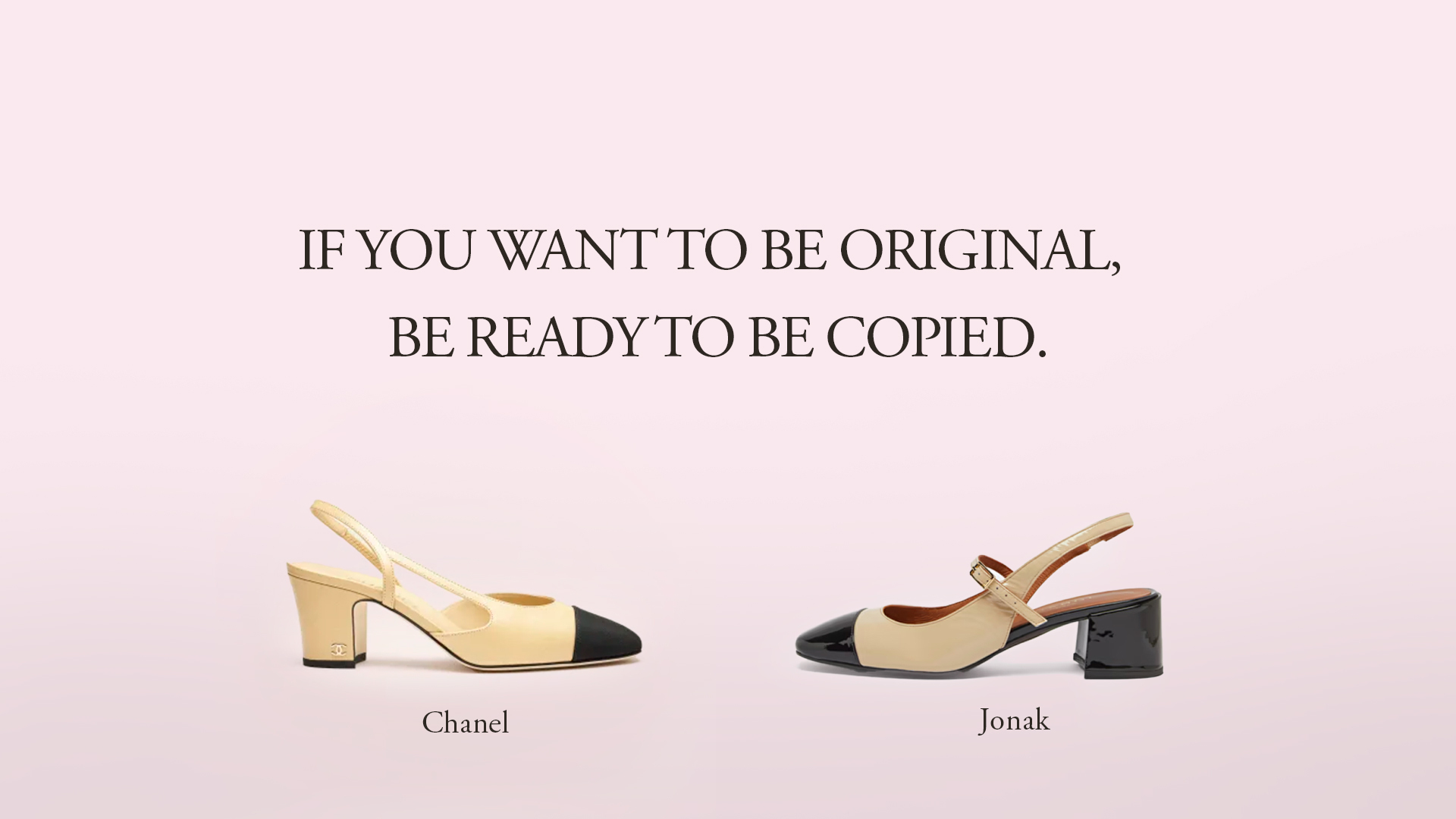In December 2020, Chanel claimed that Jonak was engaging in Parasitism by creating products that closely mimicked Chanel’s designs, therefore, leveraging Chanel’s established brand image to attract consumers.
Chanel filed a lawsuit against French footwear brand Jonak, alleging that the latter’s designs are not just inspired, but directly imitative of Chanel’s signature style. The French luxury house claims their shoe had too many similarities to be a simple coincidence.
Chanel is an iconic French fashion house known for designing timeless and sleek pieces that embrace its rich heritage. Since 1957, Chanel has continuously reimagined its iconic slingback shoe, releasing various versions that uphold the brand’s enduring elegance. The slingback is a two-tone beige design with a black toe, straps encircling the sides and back of the foot, and a square heel.
The Paris Court of Appeal’s ruling on October 16 focused on the notion of unfair competition, specifically addressing the offense of “parasitism,” which involves taking advantage of another company’s reputation and expertise. Parasitism is a concept in French law that addresses the exploitation of an entity’s reputation and brand identity for economic gain.
This case highlights the ongoing challenges faced in French luxury fashion, where heritage and exclusivity reign supreme, and few brands hold iconic status. Protecting intellectual property, preventing unfair competition, and safeguarding established identities remain crucial issues in this industry.
The Paris Court of Appeal, therefore, decided to favor the luxury brand and ordered Jonak to pay 180.000 Euros in economic and moral damages. Jonak is prohibited from selling its ‘Dhapou’ and ‘Dhapop’ shoes. In addition, the court required Jonak to cease any publications using Chanel’s images and products on all social platforms. Jonak was also asked to stop selling the models in this color combination and to withdraw them from the market within one month at the risk of being assigned a fine of /1.000/ Euros per day of delay.
In conclusion, the phenomenon of parasitism in the fashion industry is a recurring theme that underscores the delicate balance between creativity and competition. As luxury brands invest heavily in their heritage designs, the emergence of lookalikes raises critical legal and ethical questions. In the fashion industry, the concept of ‘Parasitism’ has been referenced in several cases including Balenciaga vs. Walmart, Versace vs. A&F, Chanel vs. Bouchra Jarrar, and Christian Dior vs. H&M… While parasitism is not directly counterfeiting, these practices can nonetheless dilute brand identity and consumer trust. Legal frameworks must evolve effectively to foster healthy luxury competition.






